We can video-call someone on the other side of the planet, edit the building blocks of life, and send robots to Mars. Yet we're still fighting over the same things many of our ancestors did thousands of years ago: resources, recognition, and whose god is the 'right' one.
How is it possible that we've become so smart yet remain so foolish?
Let me be clear from the start: I'm madly in love with humanity. We're the species that creates symphonies, cures diseases, and writes poetry. We're capable of breathtaking compassion and world-changing innovation. That's precisely why it breaks my heart to see us operating so far below our potential.
After years of coaching leaders and studying human behaviour, I've come to believe that two programs are running in our modern minds, sabotaging our potential at every turn. We're often told these are ancient, hardwired parts of human nature, but what if that's the first lie? Think of them as cultural software we've been running for so long we've forgotten it's not our operating system: the 'I'm Special' program (aka: Human Exceptionalism) and the 'Never Enough' program (aka: Greed).
But Wait – Are These Really "Ancient" Programs?
Here's where it gets interesting. We're constantly told that greed and competition are just "human nature," etched into our DNA by millions of years of evolution. But when we look at societies like the Koi San of the Kalahari, who’ve lived as immediate-return hunter-gatherers for tens of thousands of years, we see a different truth: these traits aren’t universal, they’re conditional, shaped by culture more than biology.
When anthropologists study the Koi San and others like them, they find something remarkable: fierce egalitarianism. If someone tries to boast after a successful hunt, they're mocked. If someone attempts to hoard resources, they're shamed. Sharing isn't just encouraged; it's as natural as breathing. One Koi San elder, when asked about ownership, laughed: "The land owns us, not the other way around."
So if these aren’t stone-age programs, where did they come from? Many scholars trace the roots of these programs to a much more recent revolution, the Agricultural Revolution about 10,000 years ago. Settling down, accumulating surplus, and creating inheritable wealth required new stories to justify why some had more than others. Exceptionalism and greed didn’t appear overnight, but slowly became embedded in cultures where power and resources became concentrated.
The 'I'm Special' Program: When Culture Becomes Delusion
Remember when you were a kid and thought your family was the only normal one, and everyone else was weird? We're doing the same thing as a species. We've convinced ourselves that humans are somehow separate from and superior to the natural world, like we're playing a different game with different rules.
But here's the thing: every atom in your body was forged in the heart of a star. The water in your cells has been through countless cycles: rain, ocean, cloud, maybe even dinosaur pee (yes, really). You're not visiting nature; you're a walking, talking piece of it.
The philosopher Spinoza saw this centuries ago when he argued that everything is one substance expressing itself in infinite ways. You and the tree outside your window? Different expressions of the same fundamental reality. This isn't woo-woo; it's what physics tells us too. We're all energy temporarily organised into different patterns.
This matters because when we see ourselves as separate from nature, we treat it like a resource to be exploited rather than a home to be cared for. It's like thinking you can sell off parts of your house while still living in it. Eventually, the roof caves in.
The Superiority Complex Goes Viral
But it gets worse. This "specialness" thinking doesn't stop with individuals, it infects how we see each other. My culture is more civilised than yours. My religion has the truth; yours has superstitions. My political views are common sense; yours are dangerous extremism.
I once coached an executive who genuinely believed that people who didn't share his educational background were simply "less evolved." He wasn't a bad person, he’d just bought into a story about human worth being ladder-shaped rather than web-shaped. Once he saw how this belief was poisoning his leadership and relationships, everything changed.
What shifted? He discovered what the philosopher Emmanuel Levinas called "the face of the other”, that moment when you truly see another person and realise they contain infinities just like you do. Every human being is a universe of experiences, dreams, and potential. When we rank these universes, we're not being rational; we're being ridiculous.
The truth is, every time we think we're special, we're building walls. And walls might make us feel safe, but they also keep out fresh air, new ideas, and the very connections that make us human.
The "Never Enough" Program: The Manufactured Thirst
When I say "greed," you probably think, as I did as a kid, of Scrooge McDuck swimming in gold coins. But the "Never Enough" program runs much deeper than money. It's the voice that says:
- "I'll be happy when I get that promotion”
- "I need more followers to matter”
- "If I just had what they have, I'd be content”
From my own journey and from coaching hundreds of people, I've learned that voice is lying. I've sat with ultra-wealthy individuals who feel poor and monks with nothing who feel rich. The difference isn't in what they have; it's in their relationship with wanting itself.
The Buddha called this endless wanting "dukkha," often translated as suffering, but really meaning something more like "unsatisfactoriness." It's not that desire is bad, desire created every work of art and every scientific breakthrough. But when we mistake the itch for the scratch, we're trapped. We humans are brilliantly creative beings who've somehow convinced ourselves that we're just consuming machines.
Think about the last time you really wanted something. Got it? Great. How long did the satisfaction last? A day? A week? Then what happened? The wanting came back, often stronger than before, just focused on something new.
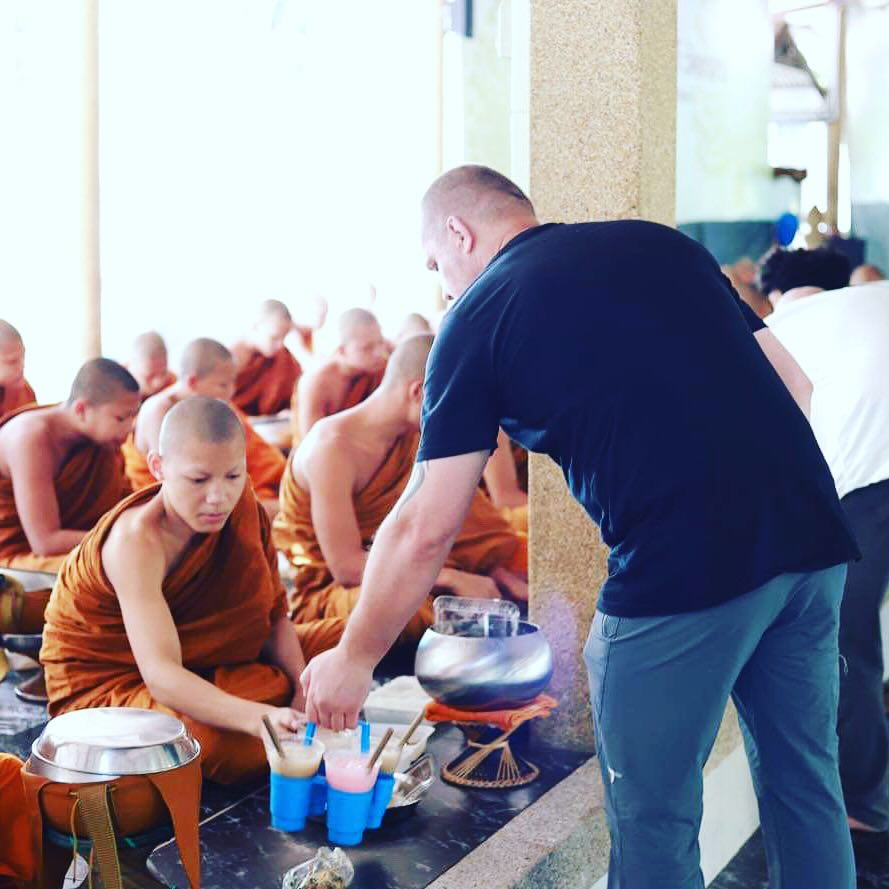
The Scarcity Scam
Here's where it gets really interesting. We live in a world that could feed, house, and care for everyone, yet we're told constantly that there's not enough to go around. This isn't natural, it’s manufactured.
Consider this: A smartphone contains computing power that would have cost millions just decades ago. We have enough food to feed 10 billion people. We have technologies that could provide clean water and energy to everyone on Earth. The scarcity isn't in resources; it's in distribution and imagination.
But keeping people in "scarcity mode" is profitable. Scared people buy more. Insecure people work harder. Competitive people don't cooperate enough to change the system. We're like fish who don't realise we're swimming in toxic water because we've never known anything else.
Yet for most of human history, we knew something else. Immediate-return societies, where people don’t store surplus, show us that constant anxiety about “not having enough” isn’t universal. It’s learned.
The Hidden Connection
Here's the breakthrough insight: these two cultural programs, "I'm Special" and "Never Enough”, are actually the same program in different costumes.
When you believe you're separate and special (exceptionalism), you naturally feel you need to grab and hoard to protect yourself (greed). When you're always acquiring and competing (greed), you need to believe you're special to justify why you deserve more than others (exceptionalism).
It's a vicious cycle, like a snake eating its own tail (but not in a mythological good way). And it's eating us alive.
But here's the crucial point: these programs aren't who we are, they’re just cultural code we've been running for a few thousand years, a blip in human history. Underneath the programming, humans are astonishingly beautiful. Watch a child share their last cookie, see neighbours rally around someone in crisis, witness the lengths people go to save strangers. That's not programming; that's our true nature shining through.
A Different Operating System
In Southern Africa, where I come from, there's a philosophy called Ubuntu that roughly translates to "I am because we are." This isn't just a nice sentiment; it's a completely different operating system for being human, and one that echoes how humans lived for most of our existence (Sadly, even there exceptionalism and greed have taken hold, so that philosophy has been degraded somewhat, but in principle, it is still very valid to this discussion).
Imagine if your success was literally inseparable from everyone else's wellbeing. Not in a "we should be nice" way, but in a "we're all cells in the same body" way. Would you hoard resources if it meant other parts of you would wither? Would you poison your environment if you understood it as your extended body?
This isn't some mystical idea. Modern science shows us that trees in a forest share nutrients through underground fungal networks, supporting sick trees and nurturing saplings. Your body contains trillions of bacteria that aren't "you" but without which you'd die. Separation is the illusion; connection is the reality.
And here's what fills me with hope: humans are literally wired for this connection. Our mirror neurons fire when we see others' emotions. We're the species that adopts orphaned animals, that runs into burning buildings for strangers, that weeps at movies about people we've never met. Compassion isn't something we have to learn; it's something we have to stop unlearning.
The Real Human Nature
If exceptionalism and greed were truly hardwired, how do we explain the Koi San? How do we explain the countless indigenous societies built on reciprocity rather than accumulation?
These cultural programs aren't failures of human nature, they’re relatively incentivised recent inventions that no longer serve us. And if we invented them, we can uninvent them.
Your Next Step
Here's my challenge to you: For the next week, run an experiment. Each time you feel the pull of superiority ("I'm better than...") or scarcity ("I need more..."), pause. Take a breath. Ask yourself:
What if this isn't human nature talking, but just old cultural programming? What if the opposite were true? What if we're equal? What if I have enough?
Notice what shifts. Notice what becomes possible. Notice how much energy you've been wasting on maintaining walls and chasing mirages.
The revolution doesn't start with changing the world. It starts with changing the stories in your head. And that revolution is available to you right now, in this moment, with this breath.
The question isn't whether we can transcend our programming, countless humans already have, and countless more lived without it for millennia. Every time someone chooses collaboration over competition, every time someone says "I have enough," every time someone sees the sacred in another person regardless of difference, they're not overcoming human nature. They're returning to it.
We are the species that survived by sharing, that thrived through cooperation, that found joy in connection. We just need to remember who we really are.
The future is counting on your answer.
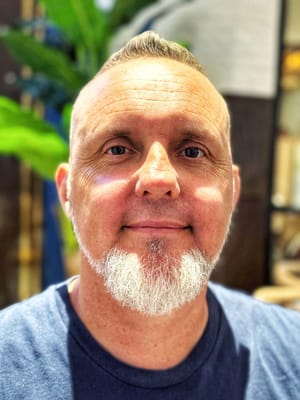
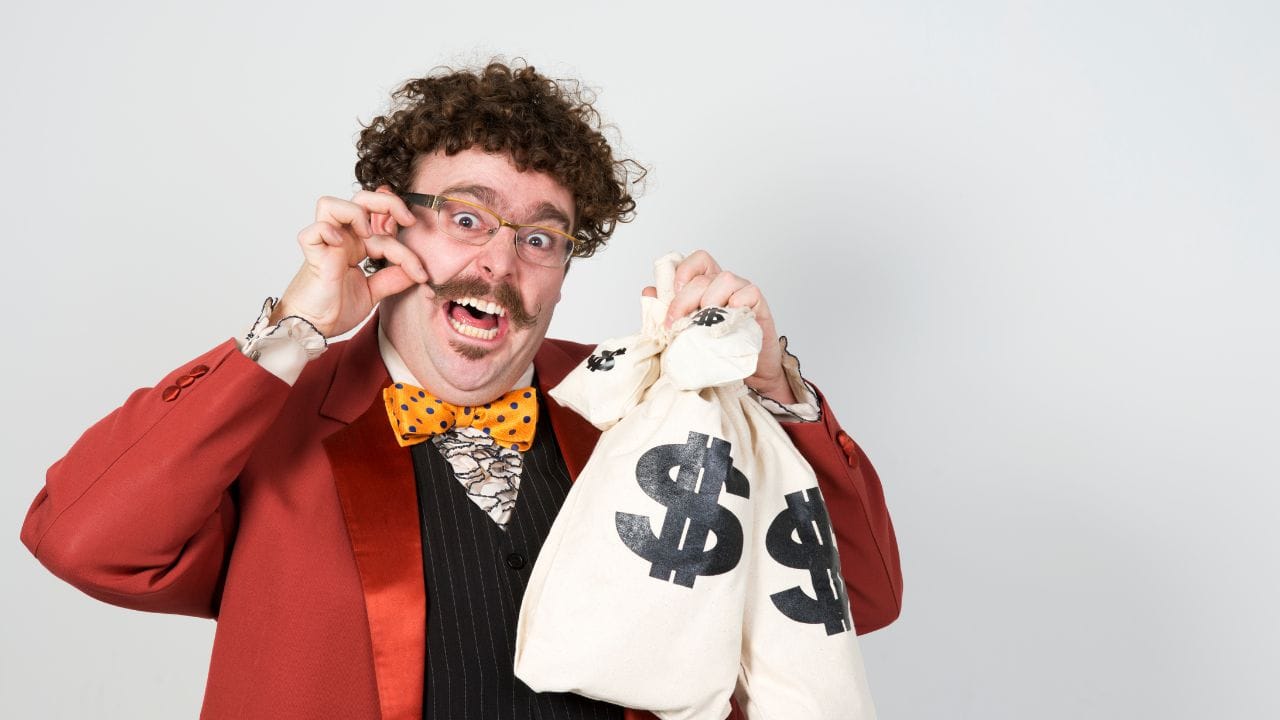


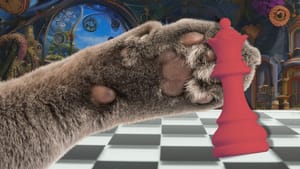

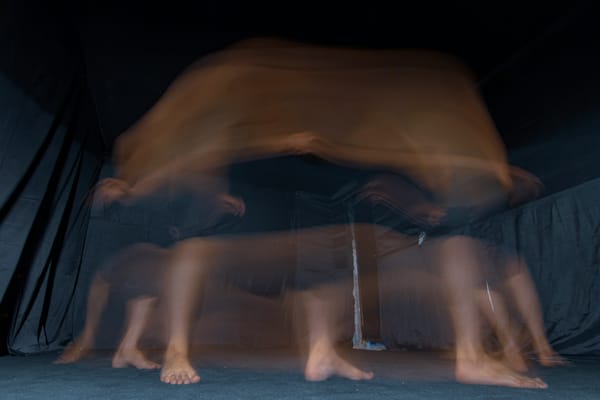


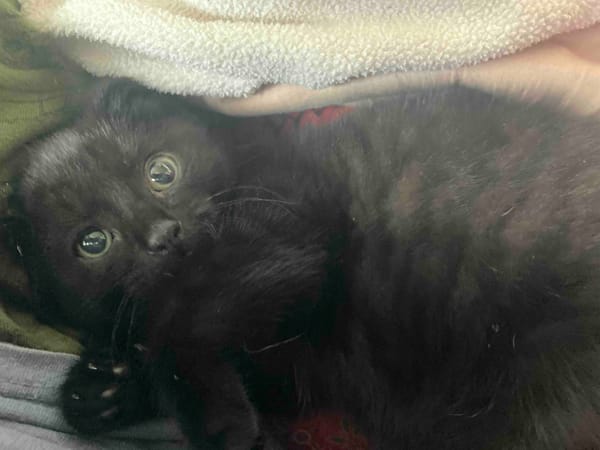
Member discussion